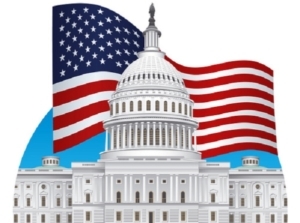
On June 22nd, The Republican majority Senate introduced its version of a new healthcare bill to replace Obamacare. It’s something to dislike for everyone but a necessary stop-gap to slow the death-spiral we are in with the ACA. It is, in my opinion, important to fully consider where we are in healthcare currently, before taking issue where a new bill is likely to take us.
Major Consideration # 1 – Increasing Cost. Under the current ACA bill, rates for those paying for coverage have skyrocketed while access to providers has narrowed. That trend will continue in 2018. Middle and upper middle class payers into insurance are choosing alternate methods that may not be as safe.
Major Consideration # 2- No coverage for those without Medicaid. Without a change in direction, as many as 6% of the entire country will have no access to ANY individual insurance, at any cost, unless they are on Medicaid and that number could skyrocket with another major carrier dropping.
Major Consideration #3 – Cost Sharing. In 2016 The Obama administration received a 12 month delay is a decision to the legality of Cost Sharing Reductions for which approximately 58% of all those enrolled through Healthcare.gov. In May of 2017, the Trump administration received another 90 day delay from the court. Without a change in direction, cost for more than half of those getting subsidies will increase significantly in August when the stay will be lifted.
Major Consideration #4 – One carrier away. As it stands right now, the loss of one carrier from a market could result in more than 35% of the entire population having no access to any individual coverage at any cost.
Now lets talk about what the Senate bill actually does and doesn’t do. Click here for bill.
TAXES
-It repeals taxes for employers and individuals back to 2016.
-It repeals taxes on OTC medications.
-It rollsback the surcharge on HSA distributions back to 10% from 20%.
-It repeals the Medical device tax.
-It rolls back the deductible exclusion of medical expenses down to 7.5% from
10%.
-It repeals the 1.45% medicare surtax.
Other issues that many Working and Self Employed insured members are concerned about.
-Repeals the $2500 FSA limit
-Increases the amount of HSA contribution to equal the amount of out of pocket expense from the plan.
-Establishes a 60 day window to open a qualified HSA plan when HDHP plan is
started.
Market Stabilization
-Provides $15b annually in 2018 & 2019 , $10b in 2020 & 2021 to help market
disruption from high claimants.
-High Risk Pool support $8B in 2019, $14b in 2020-2021, scaling down to $4b
by 2026.
-MLR – Medical Loss Ratio eliminated 1/1/2019
-Extension of Cost Sharing payments thru 2019. Would expire in August 2017.
Medicaid & Subsidies & Pricing
-Lowers income maximum eligible for subsidy to 350% of FPL from 400%.
Currently $48,240 for a single down to $42,210 max. For a 45 year old,
earning $45,000 in Cook county $0 impact. For a 55 year old , around
$1500 annual reduction.
-Benchmark plan would be the medial cost plan versus 2nd lowest Silver. This
new methodology of a lower benchmark could lower the amount of subsidies.
-Increasing the maximum premium difference from 3x to 5x to help lower the
cost of coverage for those under 45.
-Power to States to opt out of benefits and not have mandated benefits currently
in ACA.
-Senate bill keeps Medicaid requalification to 2x a year from current 1x to help
control costs.
-The Senate bill, like the House bill, caps spending and sunsets Medicaid
expansion.
-HR 1628 is not a Healthcare bill, it is NOT a replacement of the ACA,
it is a stop gap bill that spends more and taxes less over the next two years,
trying to stop the collapse of the private healthcare system kicking the can
down to the road to additional fixes in 2020 and beyond.
Un-Happy
-Ultra-conservatives wont like it because it doesn’t repeal enough spending.
-Progressives wont like it, not because of what it does in 2018 & 2019, but
because of sunset provisions in benefits that will begin impacting lower
income people in 2020.
-Progressives wont like any benefit mandate cut by States whether its
optional maternity, pediatric dental regardless of the cost to those
paying for it.
-Medicaid recipients wont like it because they have to requalify 2x a year.
-Hospitals wont like it because according to the CBO, as many as
10 million people wont take insurance, even if it is free, without a fine
for not having insurance.
Winners
-Those that don’t want to have insurance. Silly but no tax.
-Every person who pays taxes.
-Insurance companies who are getting Cost Sharing payments for low
income members and the elimination of the MLR, allowing them to take
risk and be rewarded.
-Consumers who don’t get a subsidy and are likely to see new competitiors
offering coverage.
-Higher income individuals who have used HSA;s and FSA’s.
Odds of passing – 65%. We will keep you posted!
Mark Gurda-Editor, Mr.HealthInsurance.com. Mark is also President of HealthInsure.com & Castle Group Health, Inc. Tel: 847-559-8100.
Look to MrHealthinsurance.com for independent commentary and information about health insurance and reform.




